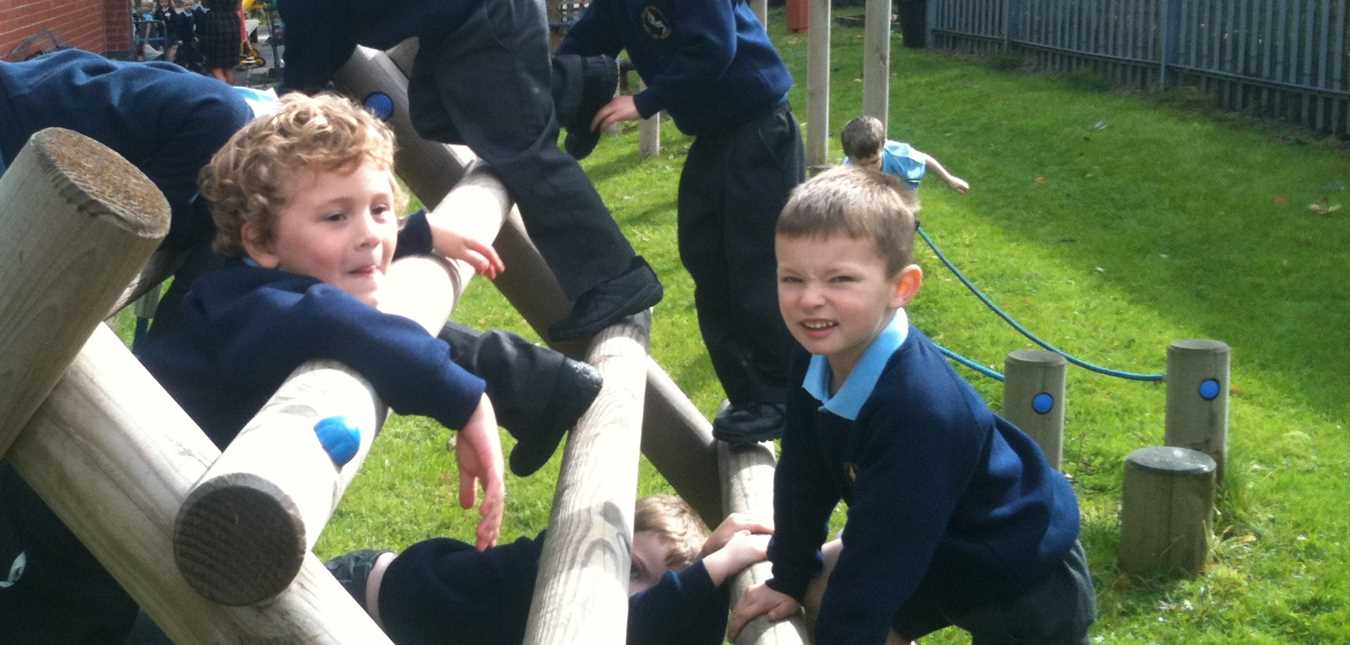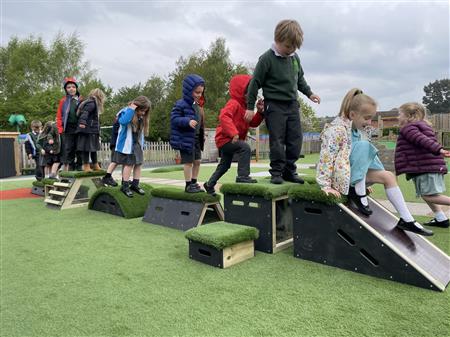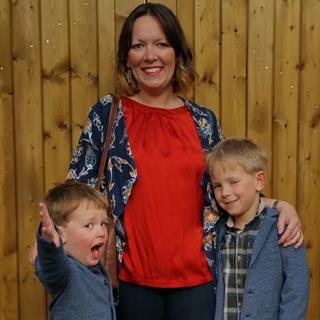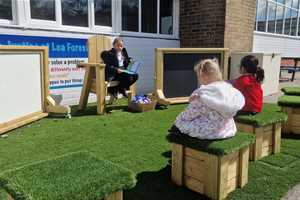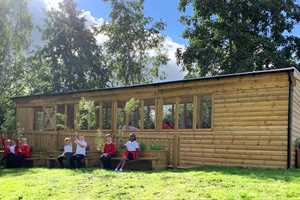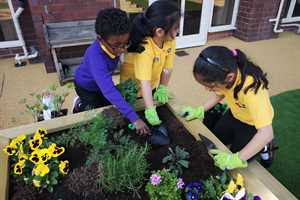
Outdoor Learning and Play
Expert advice on helping Early Years children prepare for and settle into Primary School
Well that’s it!
The Summer holidays are officially over and this week has seen thousands of young children stepping through the school gates, many for the first time, in their pristine and slightly oversized new school uniforms.
It is an exciting day for many children, looking forward to seeing their friends after a long summer and starting the academic year afresh with an abundance of new things to experience and learn.
Many will be apprehensive about the new start, whether they are anxious about leaving their parents and the comfort of home, nervous about a new environment full of people they don’t really know, or worried about whether they will fit in and make friends.
Whatever they are feeling, school is something that they are going to have to get used to one way or another, but it really doesn’t have to be stressful either for children or for their parents.
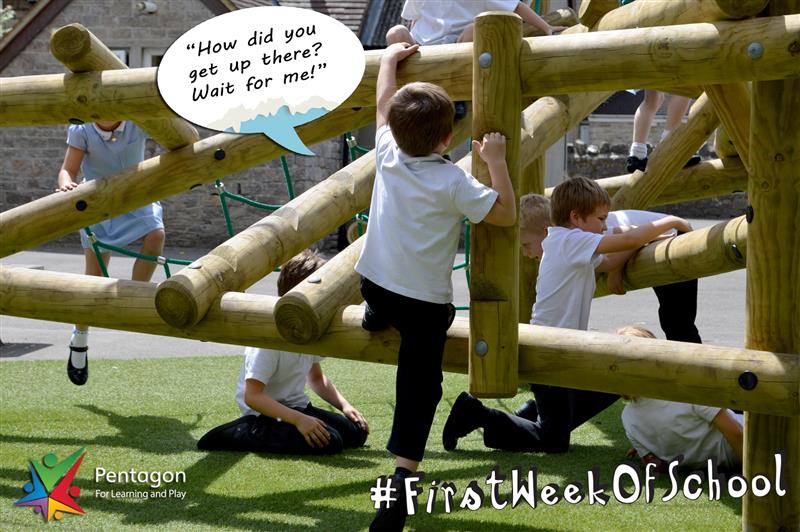
The key message is to prepare children for what to expect. If they already have some understanding of what “big school” is all about, what a special and exciting place it is, it will make all the difference when it comes to settling in.
Observing Early Years children going into school for the first time, interestingly it is often the children who are younger siblings, with older brothers or sisters already at the school, who are the ones that go marching confidently into school on the first day eager to get started!
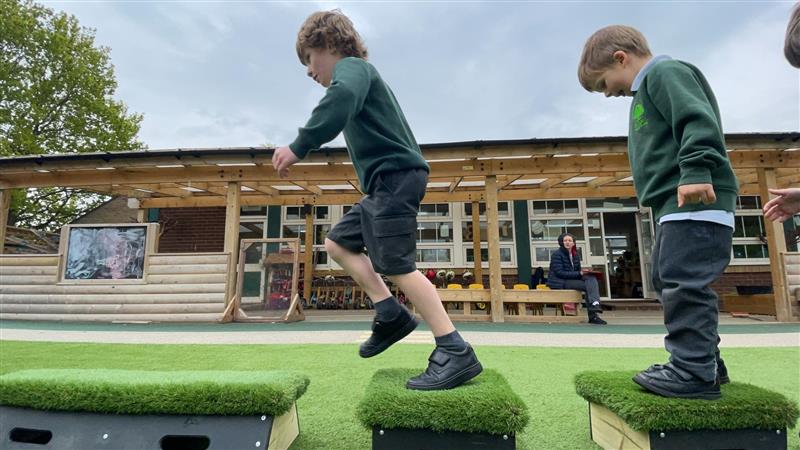
They often settle more quickly as they are so used to seeing their brothers and sisters going in and out of school, hearing and talking about it at home, joining the school run and enjoying some play time in the playground at afternoon pick up time.
They want to do the same things as their big brother or sister, and school seems more normal for them.
There is plenty that can be done to recreate this advance experience of school for first timers, even without siblings who have trodden the pathway ahead.
Here, we share some top tips and advice on how to help Early Years children prepare for and settle into primary school, which can be followed by both parents and teachers accordingly.
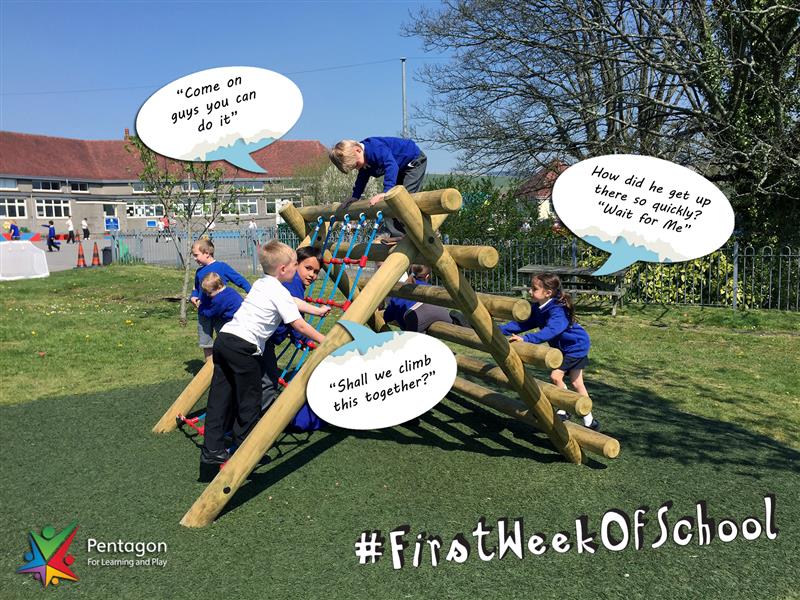
Getting to Know You
It is really important for schools to offer open or welcome days or evenings for new parents and children to attend, so that they can get used to the school environment.
Face to face and group meetings such as this, allow parents and children to have the opportunity to ask any questions that they may have about starting school, get a better understanding of how the school works and how a typical school day runs, find out who the teachers and other staff are, and even just what the school grounds and classrooms looks like, so that it becomes more familiar and less intimidating.
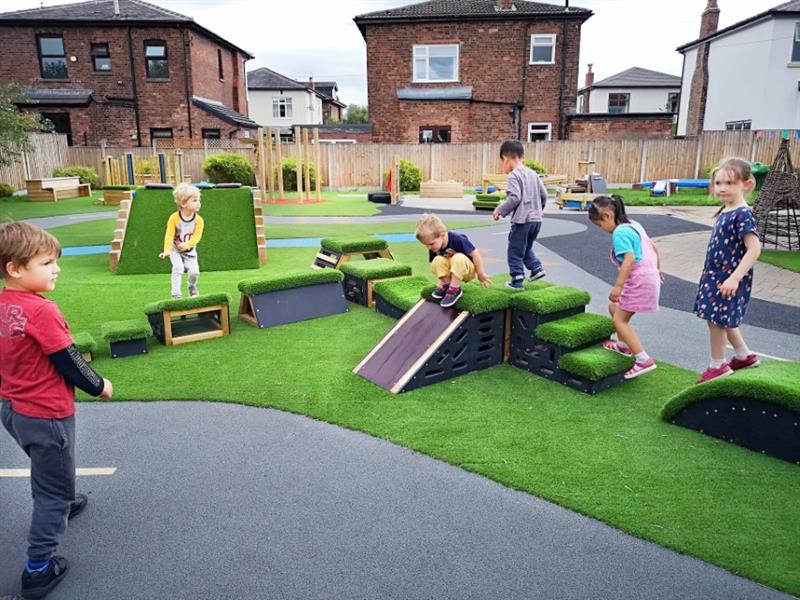
It is a chance for staff to explain to parents and children what is expected of them as well, and to help to alleviate any concerns.
Experienced school staff can make such a difference in helping children to settle if they communicate with parents well, offer sound advice and talk to them about how they can support their children during the transition into school and all throughout their learning.
The more open and communicative a school can be, the better.
Some schools offer teacher home visits, and most allow children to come into school in smaller groups or for a shorter day for their first visit, so that children do not become too overwhelmed or exhausted and get the chance to get to know their teacher while the teacher doesn’t have a full class to manage.
Some schools are very good at building relationships with local nurseries and pre schools, and sending reception teachers in to visit children in groups to help with familiarisation.
Children love this and it can be exciting to have a visit from their new teacher!
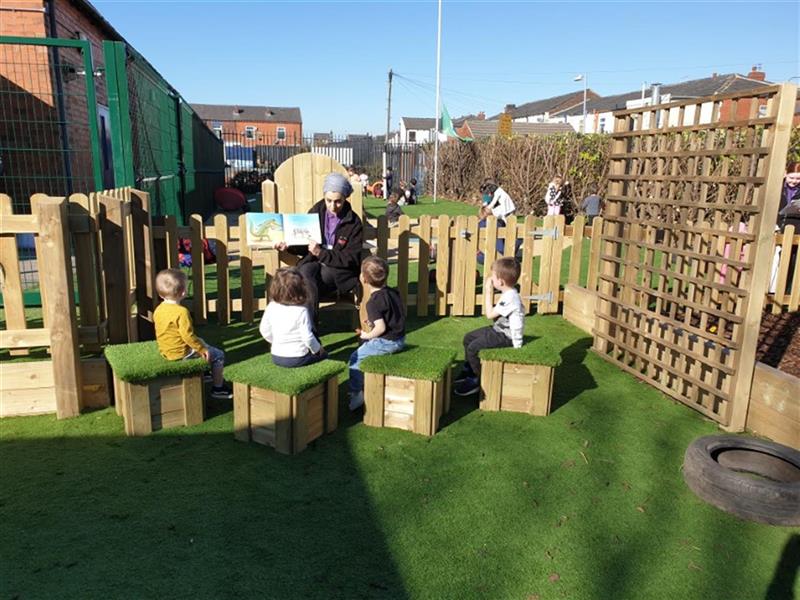
A good idea is for schools to offer up a class list, allowing parents of new pupils to sign up with their contact details so that they can arrange to meet up with other parents and children in advance of starting school, and get to know each other during the first few weeks, if this is something that they would like to do.
If children have the opportunity to meet some of their new classmates in advance, in a familiar environment and with a parent or carer present, this really helps with familiarisation.
If they already know some other faces on their first day they will feel far more relaxed and comfortable about going in together.
Simple things, such as inviting future parents and children to community events like the Summer fair or an Autumn walk or fun run, are a lovely way of allowing children to get to know a school in a fun and relaxed way and can make a huge difference.
Parents can help by taking children for regular walks with their children past their new school and stopping to have a look, pointing out the playground and classrooms and talking positively about it.
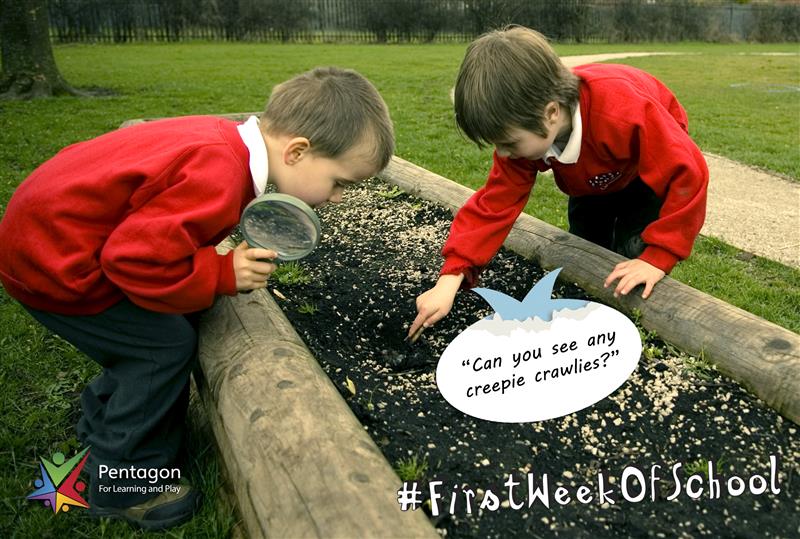
Let’s Talk About Big School!
In the year before a child starts at primary school, talk to them as much as possible about when they start school and all the different things that they will get to do.
This will help children to prepare for school mentally, which will help them to feel calm, in control and more relaxed about the experience.
Continue these conversations as they go through the settling in process. Talk about what going to school means, what they will wear, who the teacher is, what happens at lunchtime, playtime, all the different things that they will get to do and play with and the friends they will make.
There are some great story books available which discuss starting school. Parents can read them with their children at home, and teachers can read them in class or send out a short recommended light reading list of their favourites to help parents who are struggling for inspiration.
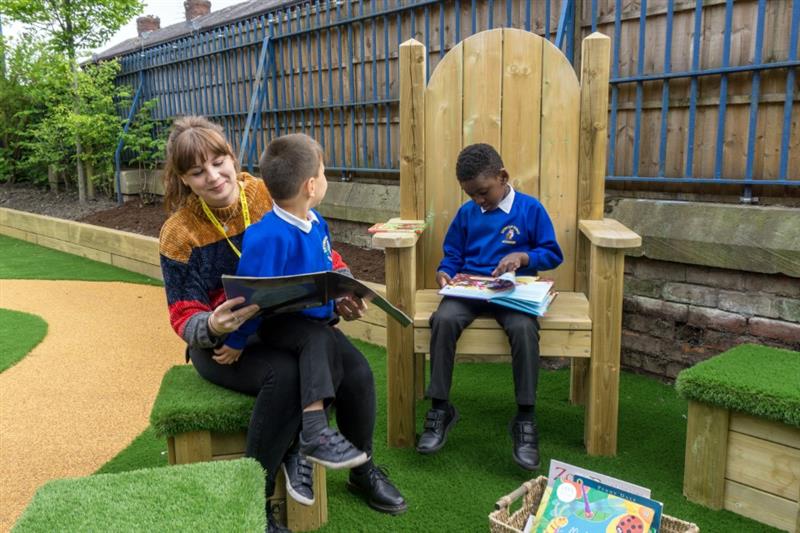
It is good to talk to children about their anxieties and ask them if there is anything that they are worried about, so that you have plenty of time to work through these worries together and let children come around to the idea that primary school is a really positive thing. It is normal to worry and most children will be scared of something!
Talk to them about all the exciting things that they will be doing and focus on things that you already know they enjoy, such as painting, baking or playing with water, so that they come to see school as a safe, happy and fun place to be.
At the end of the day, ask children what was the best/most exciting thing that happened to them that day, what they enjoyed doing the most, and what they didn’t like, if anything.
This type of question is much easier for them to answer and will help them to reflect and think positively about school, encouraging them to see it as a lovely place and knowing that their thoughts matter.
It is much better than asking “What did you do today?” which is normally met with “Nothing!” or “I can’t remember!”
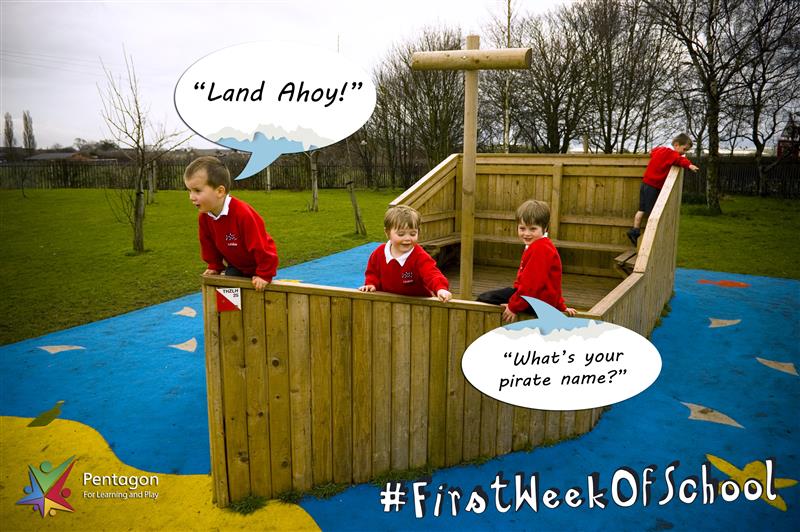
Prepare Together
Keep children involved with as many of the practical preparations for school as possible, such as shopping for new shoes, picking out a water bottle, food for their lunchbox, or writing their name on their book bag.
Tell them how special and grown-up they are.
They will enjoy the responsibility and it will help them feel more like they are in control of their own destiny. This approach should continue right through the school year.
Product Spotlight
Have a Brilliant School Playground!
It is incredible, but then perhaps not surprising, the difference that a well-planned and equipped, exciting and inspiring school playground makes to a child settling into school for the first time.
The educational benefits of outdoor play, and the presence of a good quality school playground for children throughout their Early Years and each of the Key Stages, are well known.
Even from a child’s very first day of school, if the school playground is a place that entices and invites them to play, encourages them to join in, and makes them actually look forward to and enjoy the experience of coming into school, then it is worth its weight in gold.
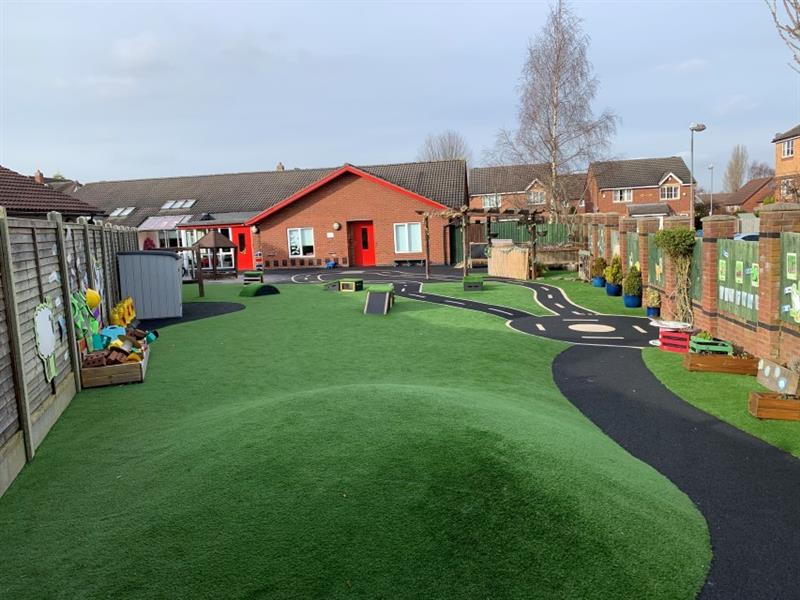
Properly thought out, a school playground can offer a wide range of sensory experiences to suit all different personalities, and to encourage even the shyest of children to come and “have a go”.
Children with access to free flow outdoor play, allowed to do their own thing with the equipment, can be stimulated, distracted, calmed or allowed to build confidence as and when each is needed.
And when they are enjoying themselves in a fun environment, the time will fly by!
For further information and advice on this subject, have a look at our article on getting your playground ready for the new school year.
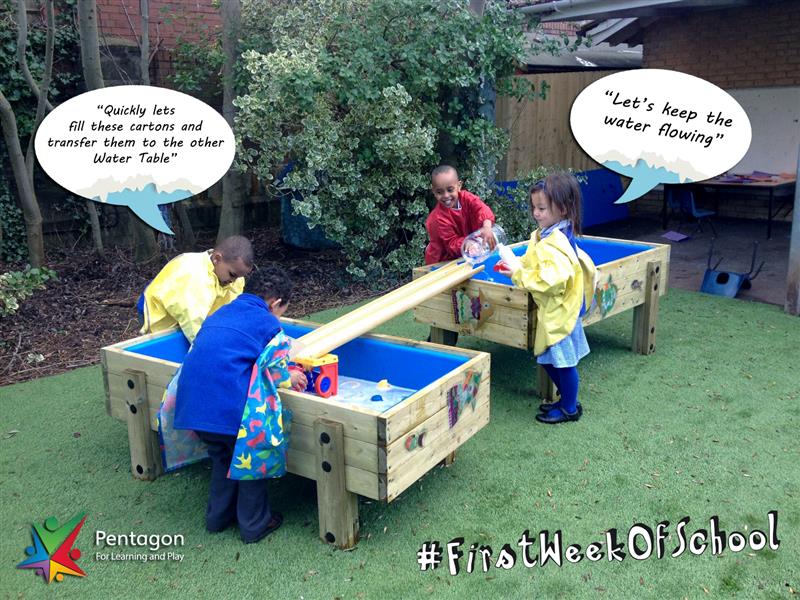
Routines As Routine
Bedtime routine, morning routine, a good diet. It sounds obvious but it can be really difficult to get back into after a long summer holiday and late summer nights!
The best thing to do is to try, if you can, to get the routines started a week or so before school starts so that it doesn’t come as a shock on the first day.
So many children of all ages suffer from tiredness during the first few weeks of school as they struggle to get back into a sensible bedtime routine and don’t get enough sleep.
This can really affect their mood and ability to cope, especially as they have so much to take in which is a challenge in itself.
Gradually going to bed and then waking up a little earlier every day during the week before school starts also means that children won’t struggle so much to get up, have a good healthy breakfast, get dressed in uniform, make sure they have everything they need and have plenty of time to get to school before the gates shut.
This applies to bleary eyed parents and teachers too! There is nothing worse than a last minute stressful dash to get to school on time, and this has a knock on effect on a child’s entire day.
Allow plenty of time to get to school so that you can chat with your child about how they feel and what they are looking forward to on the way.
No-one wants to be running to catch up or shouted at to “hurry up!” as it can be very unsettling.
Teachers also report that if a child can walk part, if not all, of the journey to school, and have enough time to see friends and have a little play in the playground before the day starts, then they are usually much more settled and ready to go into the classroom feeling relaxed, focused and ready to go.
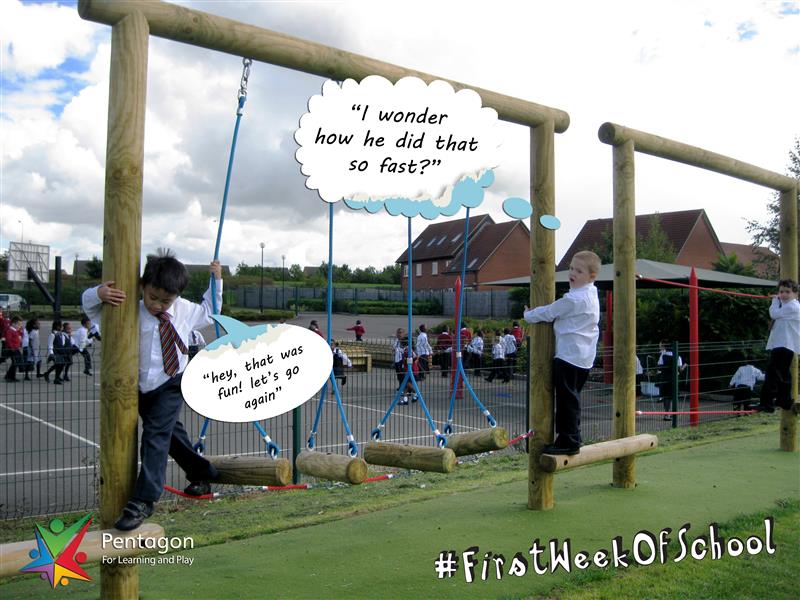
Saying Goodbye For Now
The best advice for parents, although it is not always the easiest, is not to drag out the goodbye at the school gates.
Giving a child one big hug and a kiss at the gates, a cheery and confident “Goodbye” and “Have a lovely time, see you at 3 o’clock when I am coming to pick you up and will bring you a snack” is best.
Don’t hang around longer than you need to as this only prolongs the inevitable process for the child and they need to see that you are confident and happy.
They can take a lead and draw confidence from this, which will help them to go on and take their own step forward.
They will be fine, and any tears usually stop fairly quickly after you have gone! If they are still unsettled after a couple of weeks, talk to the school about it.
On the first morning, it is nice to walk in with somebody else too, such as a friend who has a child starting at the school. The children can go in together, and the parents have someone to talk to if they are feeling emotional!
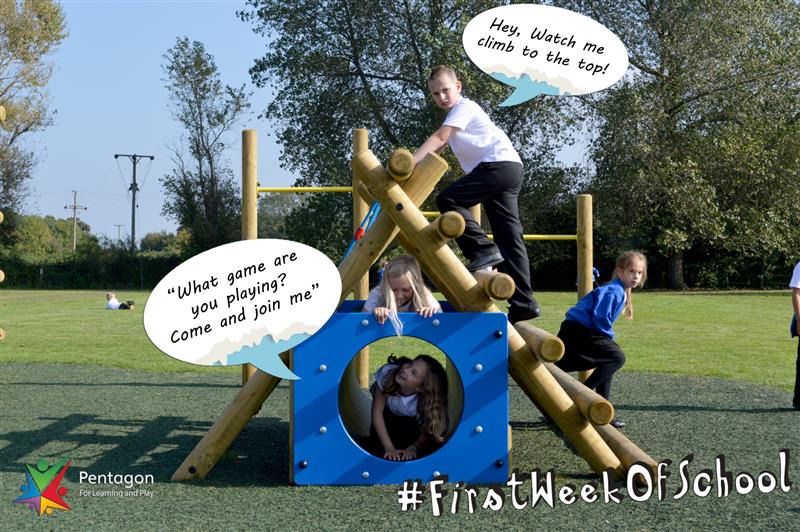
Some PTA groups arrange a “tea and tissues” morning, where parents can have a hot drink and a chat together after the first drop off, stay as long as they need to and talk about whatever they need to.
Sometimes it is the parents who struggle with the separation and the emotion more than the children, so they need support too! If the parents can feel happy and confident their children will pick up on this and it will help them to settle.
Good luck to all of your new starters, and we hope that you all have a brilliant school year.
Teachers, see the below articles for further inspiration on improving your school for the new year:
How to create a school playground for SEN children



